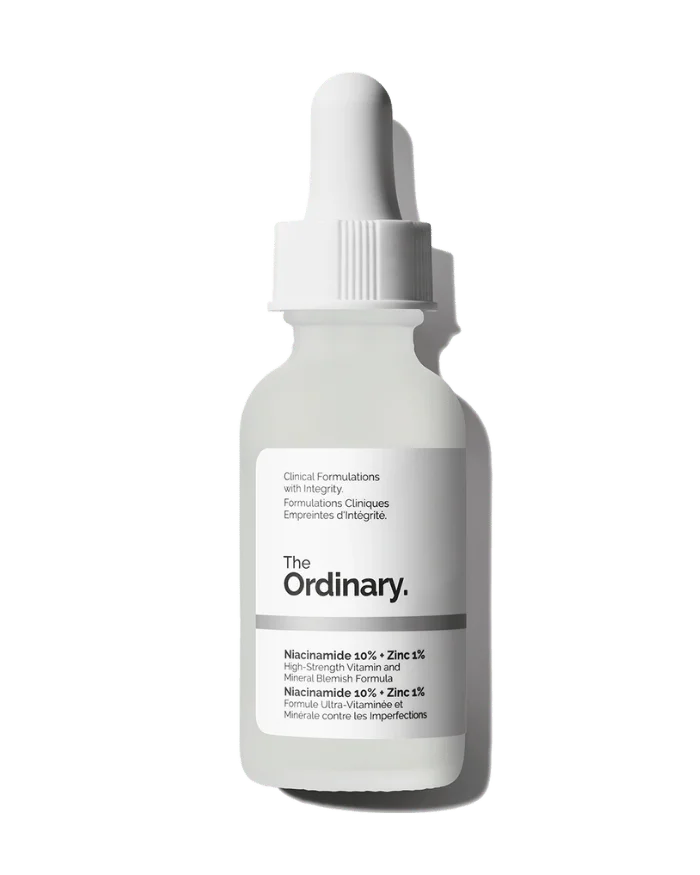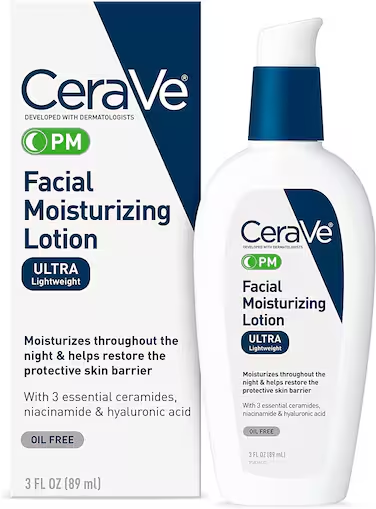Niacinamide the Best Brightening Ingredient
- Kaye's Beauty

- Mar 17, 2024
- 6 min read
Updated: Oct 3, 2025

An encyclopedia of skincare ingredients is available on the market, yet only a select few attain the coveted "holy grail" status. Among these standouts are retinol, hailed as the gold standard in anti-aging; vitamin C, renowned for its brightening properties; and hyaluronic acid, esteemed for its hydrating prowess. However, another essential ingredient deserving of regular incorporation into your skincare routine is niacinamide.
Niacinamide, also recognized as vitamin B3, is a widely favored component present in serums, moisturizers, cleansers, and more. Its compatibility with other active ingredients is commendable, which is why it features prominently in numerous beloved products, such as Peach & Lily's Glass Skin Refining Serum ($39) and Glow Recipe's Watermelon Niacinamide Dew Drops ($35).
But what precisely is niacinamide, and what benefits does it offer? Are there any potential side effects to be mindful of? To delve into these inquiries, we consulted with a scientist and two board-certified dermatologists to uncover all there is to know about this illuminating and clarifying skincare ingredient.
What Is Niacinamide?
When discussing the skincare advantages of niacinamide, we are referring to a particular form of B3 known as nicotinamide, also recognized as niacinamide. Nicotinamide is an essential water-soluble vitamin that the body does not synthesize, necessitating its intake through diet to obtain its benefits. Moreover, since our bodies do not naturally produce this vitamin, it has been included in skincare formulations, as Herrmann highlighted. Thus, to harness the brightening effects of nicotinamide, it must either be consumed as a supplement or applied directly onto the skin. Nicotinamide is present in certain topical products and can be used as a cream either in the morning or at night, typically following a gentle cleansing routine.
NIACINAMIDE
CATEGORY: Brightening Agent.
KEY BENEFITS: Enhances brightness, prevents signs of aging, diminishes acne.
IDEAL CANDIDATES: Generally, individuals seeking to improve skin radiance or stave off aging signs.
USAGE FREQUENCY: Suitable for both morning and evening application.
COMPLEMENTARY INGREDIENTS: Pairing niacinamide with stable and potent antioxidants like camellia sinensis (green tea) catechins, quercetin, and tocopherol yields optimal results. Additionally, it can help alleviate irritation associated with retinol use and general skin redness.
AVOID COMBINING WITH: Niacinamide harmonizes well with all skincare ingredients.
To know more on skincare ingredients shop our skincare ingredients dictionary on Amazon. Click here to shop.
Download our skincare ingredient scanner app from the google play store. Scan the ingredients at the back of the pack and know which ingredients are good or bad for your skin. Click here to download.
The Advantages of Niacinamide
In essence, niacinamide offers remarkable restorative properties. Nicotinamide aids in cellular energy restoration, DNA repair, and mitigating the immunosuppressive effects induced by UV rays.
Anti-aging: With a metaphorical resemblance to a fountain of youth, vitamin B3, according to Herrmann, operates akin to a well-maintained mechanism, combatting both internal and external stressors that contribute to skin degradation and premature aging signs such as discoloration and wrinkles.
Brightening: Focusing on brightness specifically, Nicotinamide has been proven to impede pigment transfer within the skin, consequently reducing the appearance of brown spots.
Redness Reduction: Benefits including diminished redness due to niacinamide's anti-inflammatory properties, augmented hydration, reinforced skin barrier, and enhanced synthesis of healthy fats, vital for achieving radiant skin.
Safe for Sensitive Skin: Suitable for sensitive skin types, including those with conditions such as rosacea or eczema. It's also found in sunscreens like Elta MD UV Clear, making it an excellent option for individuals concerned about skincare product irritation or allergic reactions.
Can Niacinamide Be Used with Other Active Ingredients?
Contrary to popular belief, skincare products often yield better results when combined with complementary ingredients. Regarding pigmentation, nicotinamide pairs well with other ingredients such as hydroquinone, kojic acid, arbutin, and soy, synergistically targeting the pigment pathway to effectively address brown spots and discoloration.
Nicotinamide/Niacinamide vs. Nicotinic Acid
A common misconception revolves around the various names for B3. Nicotinamide is a specific amide form of B3, distinct from niacin, the acidic form of the vitamin. While niacin is more readily available in drugstores, it occasionally causes flushing, a side effect absent in nicotinamide. To avoid this, it's imperative to scrutinize ingredient lists carefully.
Potential Side Effects of Niacinamide
Similar to ceramides, niacinamide aids in skin moisturization. Excessive use in skincare formulations, which may lead to irritation. Hence, it's advisable to opt for formulations with low concentrations (1-2 percent) of vitamin B3 to mitigate the risk of redness or dermatitis.
Selecting a Niacinamide Product
Choosing the right niacinamide product is crucial for reaping its benefits. It is important in selecting formulations with proven efficacy through scientific studies, as not all topical formulations effectively penetrate the skin barrier to deliver results.
Topical Niacinamide vs. Supplements
Topical niacinamide products are commonly available as liquid serums or cream moisturizers, with serums designed for layering to enhance absorption and potency. Oral niacinamide supplements are recommended for individuals with deficiencies under medical supervision, as excessive intake may lead to adverse effects.
How to Use Niacinamide
When using topical niacinamide, it's best applied in the morning, typically found in products boasting brightening properties. Serums should be applied post-cleansing and before subsequent skincare products such as moisturizers and eye creams.
FAQs
Can I incorporate niacinamide into my daily skincare routine?
Niacinamide can be used daily, both in the morning and at night. However, it's advisable to inform your dermatologist if you encounter any irritation, although this is uncommon.
How does niacinamide contribute to skin brightening?
Nicotinamide aids in the restoration of cellular energy, repair of damaged DNA, and reduction of the immunosuppressive effects caused by sun-induced UV rays. This ingredient also combats both internal and external stressors that may lead to discoloration and wrinkles.
Can niacinamide effectively diminish dark spots?
Given its endorsement by dermatologists for brightening purposes, niacinamide can be highly effective in reducing hyperpigmentation and achieving a more uniform skin tone.
Which is preferable: vitamin C or niacinamide? The choice between vitamin C and niacinamide depends on your specific skincare goals. If you seek exfoliation and brightness, vitamin C is a suitable option. Conversely, if you prioritize skin hydration, niacinamide may be the better choice.
Is niacinamide superior to retinol?
Once again, this hinges on your skincare objectives. While niacinamide excels in moisturizing and brightening, few ingredients rival retinol's ability to enhance cell turnover. However, it's essential to note that retinol often requires a significant adjustment period, with results potentially taking months or even years to manifest noticeably.
Recommended Products

The Ordinary Niacinamide 10% + Zinc 1% delivers high-strength niacinamide to reduce excess oil and the look of enlarged pores. Zinc PCA supports sebum balance and helps calm congestion. The water-based texture layers cleanly under moisturizers and sunscreens. Best for normal to oily and acne-prone skin. Apply after cleansing, morning or night. Click here to buy.

Paula’s Choice 10% Niacinamide Booster concentrates 10% niacinamide to improve tone uniformity and the appearance of pores and redness. Its water-light texture mixes into any serum or cream without pilling. The formula is fragrance-free and suited to sensitive skin. Works across skin types including combination. Use 2–3 drops after cleansing, AM/PM.
Click here to buy.

Naturium Niacinamide Serum 12% + Zinc 2% offers higher-strength niacinamide for pore visibility and shine control. Zinc helps balance oil in blemish-prone areas. The non-sticky serum layers well with other actives. Best for oily and combination skin types. Use daily after cleansing, AM and PM. Click here to buy.

CeraVe PM Facial Moisturizing Lotion combines niacinamide with ceramides and glycerin to restore the barrier. The lightweight lotion calms visible redness and provides steady hydration. Non-comedogenic and suitable for sensitive skin. Works for normal to oily types under or instead of heavier creams. Apply as your final step at night or under sunscreen by day. Click here to buy.
Kaye's Beauty Book is here to help you choose better products that suit your skin, hair and lifestyle. All of the products mentioned are carefully researched and selected to ensure that the most credible information comes to you. If you do buy a product from one of our links, Kaye's Beauty Book may earn a commission.
II DISCLAIMER: Every skin is different, not everything works for everybody. I recommend you test the product before completely using any new product. II





Comments